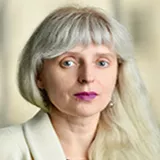The AABS 2022 Conference will look toward the future to explore how the Baltic States will move forward into the next century, as a crossroads between Europe and Asia, Nordic and Eastern Europe. Similarly, the field of Baltic Studies is at a crossroads between new and old diaspora communities negotiating the implications of what it means to advance the study and research of the Baltic States into the next century. The conference will promote intersections of academic disciplines, scholarship, and community by focusing on the implications for the Baltic States in the future at the crossroads of different regions, cultures, religions, and historical perspectives. Please find more information here, and registration here.
Gabriele Salciute Civiliene (PhD, King’s College London) is Lecturer in Digital Humanities Education, King’s College London.
Professor Salciute Civiliene is co-chair of the Education, Digital Humanities, and Technology division at AABS 2022. AABS met with her to discuss the division and what she’s looking forward to at the conference. The transcript of our conversation has been lightly edited for clarity and length.

AABS: To start, can you give us a brief overview of your division and what it will cover? What’s new in your division for this conference, compared with previous years?
GSC: This is my first year in this role. It’s been a great honor to join such a massive event devoted to the Baltic region, and I feel honored that my expertise was required for the division.
This division is an interesting mixture, as it brings a lot of intersections across disciplines. It was fantastic to see a huge amount of interest from Latvian colleagues this year in particular. Hopefully, as this event carries on, we can expand that level of interest, especially to Estonian and Lithuanian colleagues as well.
As for myself, I share interests with those who are developing tools and infrastructures for analyzing multilingual data, and it seems like a majority of applicants this year are working with languages. This is very much in line with British and European trends in the Digital Humanities.
Apart from this focus on linguistic matters and multilingual data, there is an interesting proportion of issues in Education, which covers general issues in the field but also intersections with Digital Humanities and digital technologies. I’m certain that colleagues are working on these matters in Estonia and Lithuania as well, so I think that going forward, this division and cohort will only keep expanding for future conferences.
AABS: What would you highlight as the strengths of the panels in your division?
GSC: The applicants this year fell into two broad categories, Education and Digital Humanities. One of the highlights this year across both groups is the focus on practical matters, on applications of digital technologies in both linguistic analysis and education.
AABS: What role will the panels in your division serve in the global conversation?
GSC: The great thing, in particular what Latvian scholars will bring to the table this year, is a focus on lesser-studied languages and on lesser-understood materials around those languages. Basically, a process of mapping all those smaller languages and putting them on the map for a global Digital Humanities community. That’s a great thing in line with an increased care for inclusion and diversity within Digital Humanities.
AABS: What are you most excited for at the conference in May?
GSC: I’m excited to be here for the first time as a co-chair. I’m excited to see what’s happening in the US in area studies and lesser-known areas of scholarship. I’ve learned that the University of Washington has an important role in furthering area studies, so for me that’s quite a bit of a discovery. I hope we can find institutional synergies in the future, how we can expand area studies and where we can contribute down the road. I’m looking forward to being involved in the future, because for me it was a very personal discovery, finding out about this substantial interest in lesser-studied areas and in the multicultural American context.

